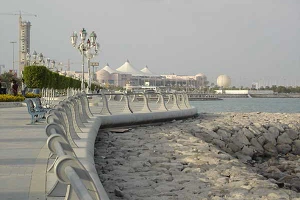Tunisian telcos win 5G licences, eye 2025 launch
- Details
- Category: Operators
- 15379 views

Tunisian telcos Tunisie Telecom, Orange Tunisie and Ooredoo Tunisia have been granted 5G licences by the Ministry of Communication Technologies and Digital Economy, clearing the way for 5G services to be launched sometime next year.
According to state newspaper La Presse, the licences were officially approved on Friday, six months after the ministry kicked off the tender process in June. All three operators submitted their applications for the licences in September.
Each licence is good for 15 years, and comes with 5 MHz of duplexed spectrum in the 700-MHz band, and 100 MHz of TDD spectrum in the 3.5 GHz band for 5G usage. The ministry has also set aside three 20 MHz blocks that will be made available at the request of operators. Other 5G frequency bands are set to be released in later phases.
The ministry had originally hoped to see commercial 5G launched in Tunisia by last month. Minister of Communication Technologies Sofiène Hmissi said that the operators are now set to start rolling out 5G services starting in 2025.
While Hmissi didn’t give a specific timeline, he noted that operators have spent the last few years carrying out tests, pilot projects and network upgrades in preparation for 5G.
"The effective deployment of 5G will not be long in coming since everything is ready on the technical level," he told La Presse.
Tunisie Télécom CEO Lassâad Ben Dhiab said in a statement that the telco has been testing 5G since 2020, and has deployed over 50,000 km of fibre that will support its 5G rollout.
Last year, Ooredoo Tunisia contracted Nokia to upgrade its network RANs to be 5G-ready.
Tunisie Telecom said that it will initially focus on providing faster mobile broadband speeds for consumers, but it is also looking at potential enterprise use cases, from VPN solutions to IoT apps including robotics and connected vehicles.
Meanwhile, Hmissi touted the economic benefits that 5G would bring to Tunisia by stimulating the digital economy and the economy in general, as well as making the country more attractive to businesses and investors, the report said.
He also said the ministry plans to launch more public-private partnership projects in the telecoms space to increase mobile network coverage in Tunisia from 96% now to 100%, with a particular focus on landlocked and remote areas.























